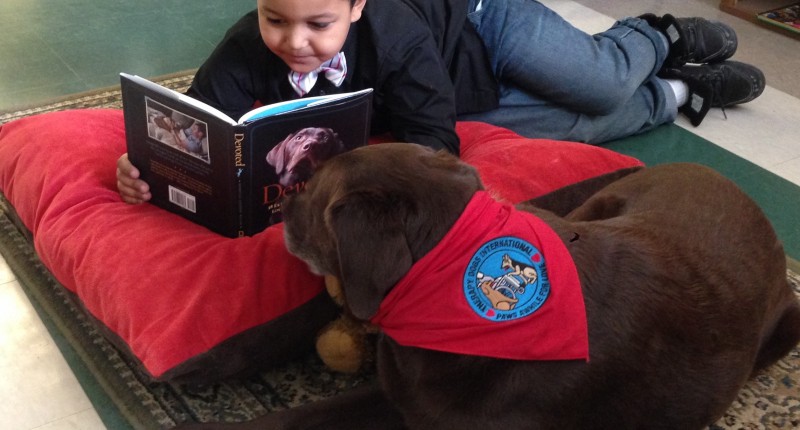Serving students with social, emotional, and behavioral health challenges
Program Overview |
Challenging academics are our school’s top priority. As a learning community, we believe the primary way to positively impact a learner’s self-esteem is through the experience of academic success and by fostering a sense of personal and intellectual mastery. We seek to use this increased sense of competency to support a learner’s re-engagement, ownership, and responsibility for their own learning. Appropriate accommodations and specialized instruction are utilized to address abilities, learning styles, and emotional stressors that may interfere with a child’s learning.
The Northshore Academy Lower School offers a braided curriculum. Two strands of our curriculum, social skill and individual development, are seamlessly woven around the core strand, which is our academic program. The individualized academic program is based on Common Core State Standards modified to meet learners at their level of independence. Teachers use a variety of tools to determine baseline levels and encourage and guide small group and individual learning that fosters understanding that is meaningful for each student. Students are encouraged to think about what they are learning, and how they can use this information in “real life” situations.
The Northshore Academy Lower School uses an integrated milieu based cognitive-behavioral therapeutic programming with naturalized intermittent reinforcement and the use of a natural and logical consequence system. The highly staffed therapeutic milieu provides social-emotional/behavioral support and skill building, rather than discrete counseling sessions. A program social worker is available, providing individual support as need arises, to address student needs “in the moment”. Skill development is also addressed through a weekly social skills group and school-wide social skills curriculum.
Who We Serve
Children in grades K – 6 who have struggled with serious emotional and behavioral challenges. Students enrolled in our school come from broad and diverse backgrounds, but all have faced exceptional challenges in school and are in need of a program that provides comprehensive educational, therapeutic and assessment services. Candidates for enrollment are referred to us through the Special Education Department of the child’s school district.
Initial Assessment
During the first six weeks of enrollment, the student’s multi-disciplinary team, which includes a representative from the district, will identify academic, behavioral, and social emotional strengths and areas of development. The Team will identify what accommodations and strategies are necessary for the student to be successful in our school setting. The TEAM will work together to form a comprehensive Individual Educational Plan. At the Lower School, the commitment is to returning all students to a less restrictive environment and we set goals and objectives to measure a student’s progress towards that.
Enrichment Activities
The art therapy group incorporates the use of various art modalities and mediums to create a safe environment in which to explore group process and dynamics. Learners are encouraged to explore individual creativity, self-expression (verbal and non-verbal) and the personal art process. As the group evolves, group participation also includes a focus on communication, self-expression in groups, work in dyads, peer relations, sharing, and group processing.
Fine motor enrichment group is a 40 minute session in which fine motor, visual motor integration, visual perceptual, motor planning, and sensory processing skills are improved through participation in activities such as group games, sensorial experiences, cooking projects, and crafts. Improving these skills helps learners to become more successful and independent during curriculum related tasks such as handwriting, organizing, classroom tool use, and self-help tasks.
Social Thinking group is enrichment group with focus on social thinking, (expected and unexpected behaviors, thinking as part of a group, negotiations and compromises) peer interaction, executive function and independence. The first grade group is enrichment for social thinking utilizing “Superflex & The Unthinkables” Michelle Winner curriculum, peer interaction, executive function and independence.
Animal Assisted Therapy: In addition to more traditional services here at the Northshore Academy Lower School we have a certified therapy dog. This resource is accessed by our learners in a variety of ways including but not limited to, therapeutic intervention, sensory breaks, therapeutic play, reading to the dog, group work, and overall experiences of benefit through stress and anxiety reduction, social interactions, humor and morale.
School Expectations
-
Be respectful in everything you do and say.
-
Be responsible.
-
Cooperate with each other.
Learner Responsibilities
-
Keep track of your school supplies, books, and assignments.
-
Start your work on time and allow time to finish.
-
Ask for help when you need it.
-
Do your own work.
-
Turn your work in on time.
-
Accept responsibility for your work and grades.
-
Be organized.
Contact and Referrals |
For more information about the Northshore Academy Lower School or to make a referral, we invite you to contact:
Tracy Farraher, Director
West Peabody Office Park
83 Pine Street, Suite 103
Peabody, MA 01960
Phone:
978-536-5151
Email:
tfarraher@nsedu.org


